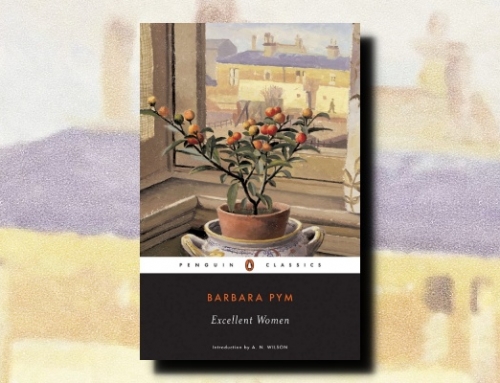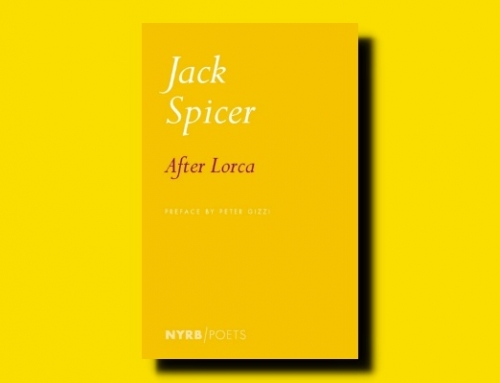
This Is Water
by David Foster Wallace (2005)
Little, Brown and Company (2009)
138 pp

Today’s post will be a bit different. In a prize drawing by Nonsuch Book, I won a copy of David Foster Wallace’s “This Is Water,” (thanks, Frances!) published this month. I decided to put some of my thoughts on it and a short piece by Wallace recently published in The New Yorker (March 9, 2009, issue).
When David Foster Wallace committed suicide last fall I admit that I initially lost quite a bit of respect for him. Recently I’ve had to revise my views on his way of ending. The New Yorker published an article by D.T. Max about Wallace’s long struggle with depression, with his not-to-be finished book, with his medication, and with suicide. I highly recommend reading it. Max is able to reconcile, for those of us who needed it, Wallace’s suicide (at the age of 46; he hung himself in his garage where his wife found him) and Wallace’s struggle to live a compassionate life and to write compassionate literature.
I could then read with gusto and sympathy (rather than cynicism) his short speech “This Is Water,” which was delivered to the 2005 graduating class of Kenyon College.
It is a very short speech, available online for anyone not looking to collect Wallace’s works in book form. However, in the short space Wallace is able to inject a lot of feeling along with his idiosyncratic style. I wish my commencement speech were as well told and, dare I say it, inspiring. I’m not sure Wallace wanted his speech to be “inspiring”; he seems to dislike the potential to lock up his thoughts in a sort of Graduation Speech genre. Frequently he says he is not trying to instill morals among the audience, just a way to look at life, a way that involves constantly being aware of one’s surroundings and choosing to act with compassion. Perhaps it sounds clichéd, but he knows that. What we get then is a new perspective on an old message. All in all, it is worth the ten minutes it takes to read.
Ten minutes? And yet Little, Brown has released it in book form and is charging $15 for something I can get online for free? The short answer: Yes. And I can’t defend purchasing it, except that you can then have a nice volume of a nice speech.
To stretch the speech to book length, Little, Brown chose to put a singular sentence on each page, in the end getting 137 pages. That means that some pages have an emphatic “That is real freedom.”
It’s the other pages, though, the ones filled with sentences in true Wallace flare:
It’s the end of the workday, and the traffic’s very bad, so getting to the store takes way longer than it should, and when you finally get there, the supermarket is very crowded, because of course it’s the time of day when all the other people with jobs also try to squeeze in some grocery shopping, and the store is hideously flourescently lit, and infused with soul-killing Muzak or corporate pop, and it’s pretty much the last place you want to be, but you can’t just get in and quickly out.
You have to wander all over the huge, overlit store’s crowded aisles to find the stuff you want, and you have to maneuver your junky cart through all these other tired, hurried people with carts, and of course there are also the glacially slow old people and the spacey people and the ADHD kids who all block the aisle, and you have to grit your teeth and try to be polite as you ask them to let you by, and eventually, finally, you get all your supper supplies, except now it turns out there aren’t enough checkout lanes open even though it’s the end-of-day rush, so the checkout line is incredibly long.
Which is stupid and infuriating, but you can’t take your fury out on the frantic lady working the register, who is overworked at a job whose daily tedium and meaninglessness surpass the imagination of any of us here at a prestigious college . . . but anyway, you finally get to the checkout line’s front, and you pay for your food, and wait to get your check or card authenticated by a machine, and you get told to ‘Have a nice day’ in a voice that is the absolute voice of death.
And then you have to take your creepy flimsy plastic bags of groceries in your cart with the one crazy wheel that pulls maddeningly to the left, all the way out through the croweded, bumpy, littery parking lot, and try to load the bags in your car in such a way that everything doesn’t fall out of the bags and roll around in the trunk on the way home, and then you have to drive all the way home through slow, heavy, SUV-intensive rush-hour traffic, et cetera, et cetera.
Everyone here has done this, of course — but it hasn’t yet been part of you graduates’ actual life routine, day after week afer month after year.
Sounds very encouraging, no? In his great form, Wallace, in a commencement speech, is able to keep his writing fresh, bringing up a detail here and there, only to bring them up again later in a large, very meaningful, repetitious but fresh conglomeration of details. In the end it feels empowering.
Which brings me to the next part of this post. In the same issue as the Max article, The New Yorker published what, as far as I can tell, is a segment of Wallace’s unfinished book: The Pale King. The book is apparently an unfinished mamoth, and will probably be published in its state much like 2666 was. However, like 2666 what is written is wondrous, at least in its individual units.
“Wiggle Room” (also available free online) is a four-page segment about Lane Dean, Jr., one of the workers “whose daily tedium and meaninglessness surpass the imagination”: he is one of the unfortunate souls who checks tax returns for the IRS.
This was boredom beyond boredom he’d ever felt. This made the routing desk at UPS look like a day at Six Flags.
Lane imagines a beach and flexes his buttocks in order to provide a slight diversion. The beach slowly changes, though, becoming less like paradise and more like a cold gray death. He challenges himself to not look at the clock, to do three tax returns before looking at the clock again. Time goes slowly, and we fill it, though we are wipping through the prose. Lane also keeps a picture of his young family on his desk, an attempt to keep him sane and keep away desperate thoughts:
Never before in his life up to now had he once thought of suicide. He was doing a return at the same time he fought with his mind, with the sin and affront of even the passing thought.
As always, the details are superb. Wallace can describe a boring job in a way that is anything but boring, placing in details that seem disparate but that actually go along nicely: “Everyone’s face was the color of wet led in the flourescent light. You could make a semiprivate cubicle out of the screens, like the team leader had.”
And, also as always, the story takes an unexpected but wonderful turn. Another worker puts his “ham” on Lane’s desk and begins to talk about the Word. “Bore.”
Word appears suddenly in 1766. No known etymology. The Earl of March uses it in a letter describing a French peer of the realm. . . . In fact, the first three appearances of “bore” in English conjoin with the adjective “French” — that French bore, that boring Frenchman, yes?
We go in depth, but it is a great trip, I assume even if you don’t like to learn about words and their origins (I do). Though a segment of a greater work, the story comes together, or at least, it ends. I didn’t want it too. Which means, I’m looking forward to seeing The Pale King in whatever form it comes.








One sentence on each page…$15…is it any wonder the publishing industry is struggling? It’s too bad because it’s a good moment of Wallace’s; I read it originally in the Best American Non-Required Reading series. Trevor, what do you think of Wallace’s fiction v. his non-fiction? I’ve mainly only read his non-f because I sort of dread maximalist novels.
I’ve also avoided much of his fiction, nathan. I have not read either of his novels, though the Max piece in The New Yorker convinced me I’m losing out. However, I really like his short fiction. You know how some writers are colloquial just to be colloquial? His style, in my view, actually makes his insights more profound. Can’t think of a way to write what I’m thinking right now, but perhaps you get my point. He’s at once colloquial and incredibly formal. I recommend Brief Interviews with Hideous men. Seems like Wallace exercised more control here than in some of his earlier stuff (though that’s just an impression at the moment).
Very interesting — thanks for writing about this, as it definitely sounds like something I’d like to read, as I’m a new DFW fan. I’m not sure I’d want to buy the book with one sentence per page though! But I do like Wallace’s nonfiction style very much.
Here’s an interesting essay from The New York Times discussing this speech and its subsequent publication.
However, for some reason it says that a passage referring to suicide has been “gently elided,” but it was not. I have not read the speech anywhere but in the book, and I remember that passage screaming at me. I will double check this when I am with my book again.
[…] via The Mookse and the Gripes » David Foster Wallace’s “This Is Water” and “Wiggle Room” […]
Great article.
I have not seen the book version of This is Water, but my understanding is that it leaves out the sentence, “They shoot the terrible master” in the following section:
“Think of the old cliché about “the mind being an excellent servant but a terrible master.”
This, like many clichés, so lame and unexciting on the surface, actually expresses a great and terrible truth. It is not the least bit coincidental that adults who commit suicide with firearms almost always shoot themselves in the head. They shoot the terrible master. And the truth is that most of these suicides are actually dead long before they pull the trigger.”
If you have the book, perhaps you can confirm this one way or the other. It seems to me an essential sentence.
I do have the book still, Emily, and will look that up. Most of it sounds familiar, but I don’t remember if “they shoot the terrible master” is there or not.
I’m moving for the next few days, and then I’m off to a vacation in Massachusetts, so I’m not sure when I’ll get a chance to look that up, but I will, and when I do, I’ll post here.